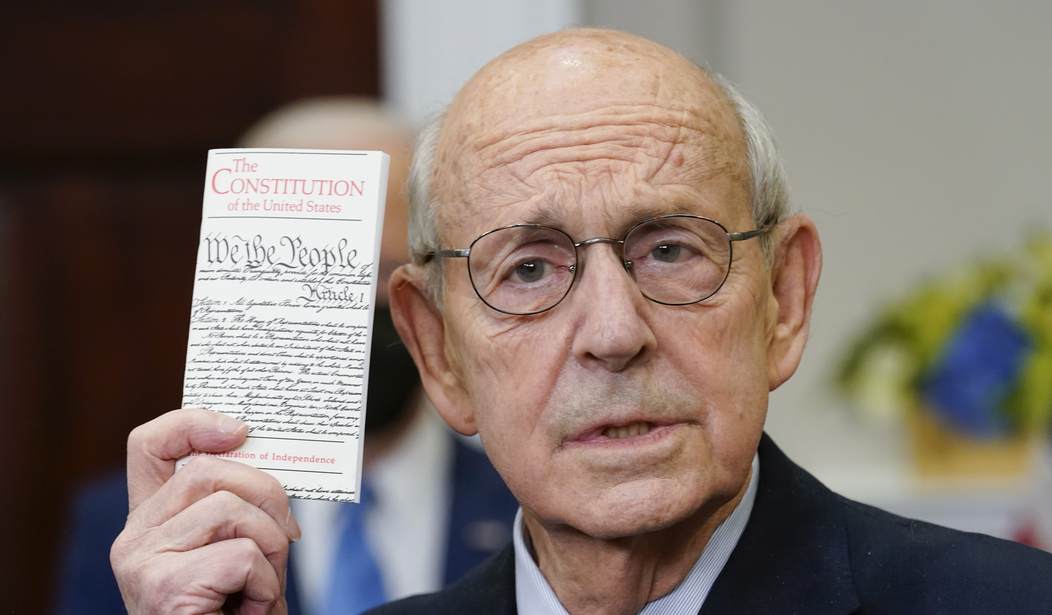Sept. 17th is Constitution Day. There will be little fanfare and no parades or fireworks. It’s now fashionable to criticize this document as a relic of the past.
But these critics overlook its ongoing vitality.
While our founding charter draws from and builds upon ancient wisdom, it still offers a roadmap to our future—if we as a nation would rededicate ourselves to its precepts. William F. Buckley, Jr., once described conservatives as “those who stand athwart history yelling ‘stop!’” We might similarly define today’s constitutionalists as those who stand amidst political turmoil yelling “read!”
Take the case of 303 Creative v Elenis, which is before the U.S. Supreme Court awaiting oral argument later this fall. Attorneys with Alliance Defending Freedom represent Lorie Smith and her design studio, 303 Creative. The case centers on the state of Colorado’s attempt to force Lorie to design websites promoting views about marriage that violate her core beliefs. While she serves all people, she cannot convey all messages. Government-coerced speech and censorship are two sides of the same unconstitutional coin.
Forcing someone to speak the government’s preferred message and censoring all dissent is precisely the type of oppression the First Amendment’s Free Speech Clause aims to prevent. In a democratic republic where the whims of a popular majority may fluctuate as often as the trends of culture, the Founders were keen to see the need to protect all speech, not just the speech that government supports. Yesterday’s accepted norms can become today’s reprehensible antiquities.
Recommended
The once-common sentiment of “I disagree with what you say but would defend to the death your right to say it” has been replaced with “I disagree with what you say, so you have no right to say it.” The former recognizes that freedom for oneself requires freedom for all others, while the latter demands freedom for oneself at the expense of others.
Notably, if Lorie and her attorneys at ADF are successful at the U.S. Supreme Court, her victory would provide the same protection for those who vehemently disagree with her. The principle of free speech would protect a citizen who holds pro-abortion views from being forced to create graphics, signs, or websites for the March for Life. However, if the state of Colorado’s view of the First Amendment should carry the day, every citizen would be placed in the precarious position of wondering if or when their freedom to say what they believe would be subject to election results.
One reason that civil discourse has become historically uncivil is Americans’ acceptance of the government’s encroachment into practically every aspect of American life. When the state reaches almost everything, the stakes of every election seem total.
The Constitution anticipated this danger by establishing a federal system with a national government of limited, enumerated powers. The Constitution further limited federal authority through the separation of powers and the protection of individual rights. It ultimately left most of the power to the states, which could serve as “laboratories of democracy” by experimenting with diverse policy approaches.
In recent years, we’ve weakened all these structural safeguards: expanding federal power, concentrating power in the executive branch, standardizing state policy through federal spending, and cabining individual conscience rights. The leviathan size, scope, and influence in the day-to-day affairs of the American people is the fruit of years of constitutional encroachment by officials. But this was only possible through years of constitutional neglect by our people.
Renewing respect for the role of the states under the 10th Amendment would restore our federalist structure and likely lower the temperature of our not-so-civil discourse during the seemingly perpetual federal campaign season. Similarly, reviving a reverence for the First Amendment’s original purpose of evenhanded protection for all would provide a powerful antidote to the poisonous temptation to censor, compel, or cancel.
On this 235th anniversary of the signing of the U.S. Constitution, some might argue that a document written in the 18th century is out of step with the modern world. Yet most of the challenges facing our nation today are a result not of a flawed document but in our flagging adherence to it.
If on a journey one finds himself lost, the most likely way home is to retrace his steps. Moreover, when we discover we are headed in the wrong direction, the only way to make progress is to turn back. We can return to the wisdom of the past without repeating the mistakes of our admittedly flawed forefathers.
While our nation is relatively young from the perspective of human history, our Constitution is among the oldest written governing documents still in force. Its perseverance is a testament to its genius. We should celebrate it as such. More importantly, those of us blessed to live under its guarding principles should renew our commitment to them.
Lathan Watts is vice president of public affairs for Alliance Defending Freedom (@ADFLegal).

























Join the conversation as a VIP Member